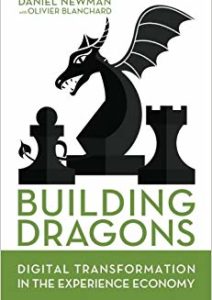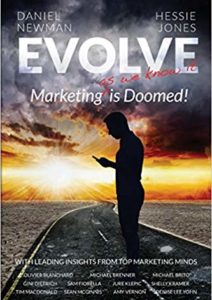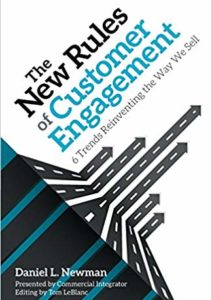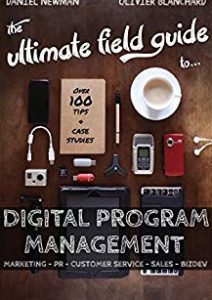The pressure for sales professionals is on.
It mounts as the quarters or years go by and the reward once you hit your number is another number. So just as you take a breath after winning that last-minute deal to make your year, just know, it is coming at you once again.
In a fast-paced world where results are sometimes the only thing that matter, it is each of us as individuals that need to be smarter and more productive. This often means doing more with less and you know what — most salespeople are up for the challenge.
So when the next number is thrown our way it is time to get down to business and we all know the more productive we are the better. Here are 7 rules for increased sales productivity that can help every sales pro get just a little (or a lot) more done each day:
1. Know Your Prospect
At first glance, this may sound like an “understand who your customer is” statement, but it isn’t.
I fully expect that anyone who is reading this knows the DNA of his or her ideal customer. In this particular case, I am saying know as much as possible about the specific customer you are targeting. In today’s world there is a plethora of information about companies and individuals and for salespeople, it is their responsibility to do their homework. Go online and learn as much as you can about the company your prospect works at as well as the individual. LinkedIn is always a great place to start and then I recommend reading company blogs and news releases to get a gauge of what is important to the organization at this current time. In Base, you can clip full LinkedIn profiles into your CRM. Here at Pipeliner CRM, you can now add the major social streams right to the contact record.
2. Plan Your Activity
It feels like there is never enough time anymore to keep up with the needed work to win the deals you’re chasing all while trying to keep your current customers happy.
It is for this exact reason that it is more important than ever for sales professionals to work their plan on a daily basis. While to some extent it may be a reminder to have your days and calls lined up, this is one of those steps that too often gets missed by sales executives as they get bogged down by the flood of information coming their way (see more at #5). I recommend scheduling yourself for Activities even when you don’t have specific meetings with tasks like follow up calls, introductory emails, and prospect research. Put it on your calendar and hold yourself to it just like any other meeting.
3. Manage Opportunity Information
Depending on the complexity of the sale you are trying to win, there is often more than one player in deciding the deal.
Just like the concept of team selling there is also team buying. Many companies put decisions in the hands of many for valid reasons but for sales pros, this just feels like headaches and hurdles. As you are working your way through a deal make sure to clearly track who all the decision makers and influencers are on the customer side and make notes as to what you have committed to each as well as which ones you have earned the support of vs. those that need more attention. In Pipeliner a cool feature is the Buying Center, where you create a drag and drop org chart of the buyer’s organization. As deals become more complex this insight can help keep you on track.
4. Tell Them Something They Don’t Know
Google is way smarter than any of us and for clients who are buying, they often know the vast majority of the information about your company and products before they even talk to you.
In fact, according to Forrester, it is about 70-90% of the way into the buying cycle when companies engage in sales in the information age. With this being the case, it is important to use the time in front of customers to tell them more than what they can easily have learned about your business online via search or other vehicles. As busy as you are, treat the customer’s time with respect and make sure to get to the deeper value proposition and not just what they could easily garner without your help.
5. Turn Off Distractions
The chime of your cell phone or the beep of a Facebook notification in the background of your PC can be a huge distraction and can often turn your attention away from what you are doing.
I highly recommend when important work is being done whether planning for a presentation or putting together a proposal with a deadline, to turn off those distractions. As I mentioned above, it is easy to get caught up with all of the technology in our lives so we have to manage ourselves better. This goes back to setting and working your schedule and not letting things easily use up our precious time. This also goes for email. I know we are all waiting to hear from the customer on the big deal, but when you have something important to get done, turn it off for a while. You will be surprised how much more you can get done.
6. Ask For Referrals, Ask For Business
This may seem like a bit of Sales 101, but it is a reminder we all need. While customers who really want and need something are going to be more eager to move forward through the deal cycle, it is still important for sales to ask for the opportunity to serve the customer.
As humans, this can be a reminder to take action (as the customer) or to display your genuine interest in working with the client (as the sales pro). Further, we need to get back to asking our good clients to help us make introductions to more potential clients. Referrals break down the trust barrier fast. According to Nielsen, consumers who receive a referral from someone in their network will trust and act on it at a rate of 92%. This is a great way to drive business and most companies don’t do it. One Business Network International study showed that 98% of companies depend on referrals (word of mouth) as their number 1 growth strategy yet only 3% have a plan to grow word of mouth.
7. Stay Persistent
Short but sweet on this one.
Study after study has shown that sometimes you have to ask for a sale 4, 5, 6 or more times before you get it — yet most sales pros stop after just one or maybe two. Stay diligent and focused on winning the deal and ask for the business. While I never recommend being annoying, just know that your customers have a lot going on and what you are trying to sell them isn’t always top of mind.
How do you do with these 7 rules for productivity? What have you found that helps you stay more productive and more importantly keeping you at or above quota year after year?
This post was first published on Millennial CEO. Daniel updated it for our blog.















